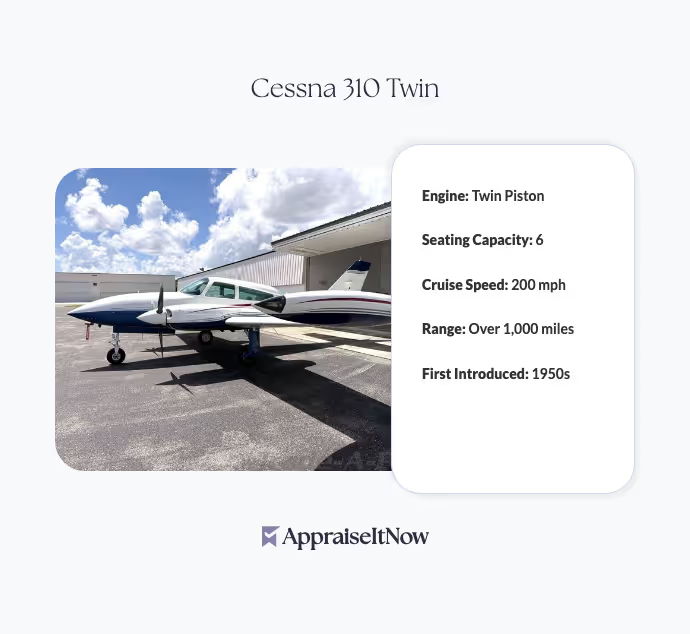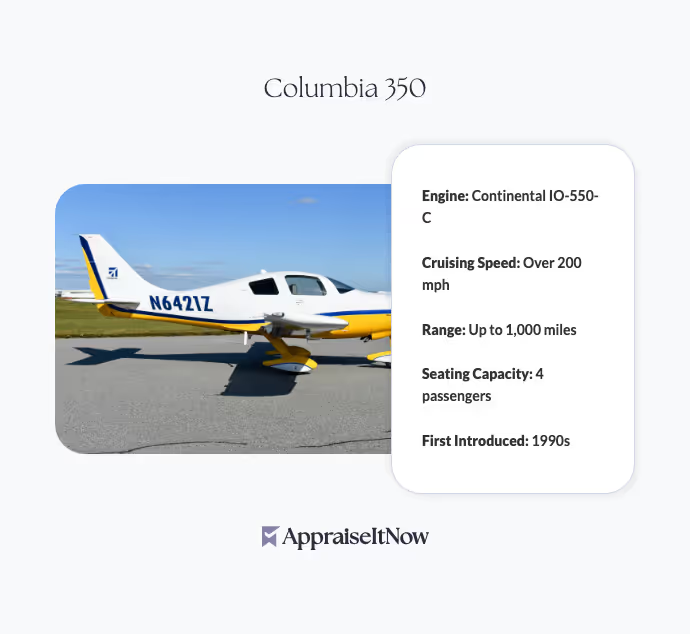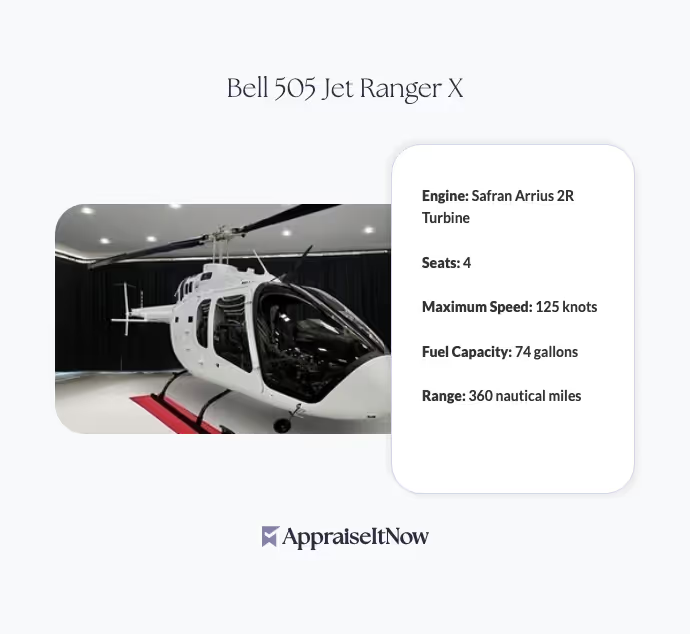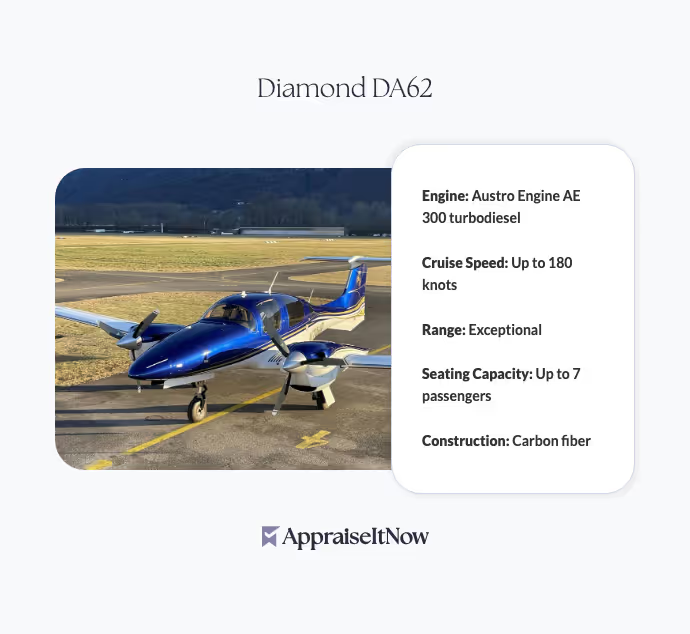<h1>How to Get Your Cessna 310 Twin Appraised</h1>
<p>The Cessna 310 Twin represents a significant investment in personal or small-business aviation, commanding valuations between <strong>$100,000 and $150,000</strong> depending on condition, maintenance history, and avionics upgrades. Whether you're considering a purchase, planning to sell, or need to establish value for insurance purposes, understanding what drives a Cessna 310 Twin's appraisal is essential to making informed decisions about this versatile twin-engine aircraft.</p>
<h2>What Makes the Cessna 310 Twin Valuable</h2>
<p>First introduced in the <strong>1950s</strong>, the Cessna 310 established itself as one of the most reliable twin-engine aircraft in private aviation history. Its enduring design and proven performance have made it a staple in the market for decades. With a cruising speed around <strong>200 mph</strong> and a range exceeding <strong>1,000 miles</strong>, the 310 combines efficiency with practical capability—accommodating up to six passengers comfortably makes it well-suited for both personal travel and small business operations.</p>
<p>The aircraft's reputation for reliability and well-engineered systems continues to attract pilots and owners today. Unlike some vintage aircraft that become increasingly difficult to maintain, the 310's widespread use across private aviation means parts availability remains strong, directly supporting its value retention. This proven track record is why the 310 consistently performs well when you're evaluating <a href="/types/aircraft">aircraft appraisals</a> for insurance, sale, or estate purposes.</p>
<div class="callout tip"><p><strong>Appraisal Insight</strong></p>
<p>Well-maintained Cessna 310s with documented service records typically command prices at the higher end of the $100,000-$150,000 range.</p></div>
<h2>Key Factors That Influence Your 310's Value</h2>
<h3>Condition and Maintenance History</h3>
<p>Your Cessna 310's appraisal value hinges primarily on condition and maintenance documentation. Professional appraisers examining a twin-engine aircraft focus on whether the airframe, engines, and systems reflect consistent care. A comprehensive maintenance logbook showing regular inspections, engine overhauls, and component replacements significantly strengthens your aircraft's valuation and marketability.</p>
<p>Is the Cessna 310 a good first twin-engine aircraft? Its reputation for stability and forgiving characteristics makes it an attractive choice for experienced pilots transitioning to twin-engine operations. This desirability among a substantial buyer pool supports consistent valuations—if you're selling, this broad appeal becomes an asset when timing the market.</p>
<h3>Avionics and Equipment Upgrades</h3>
<p>Modern avionics installations represent one of the most impactful value drivers for older aircraft like the 310. An original panel from the 1970s or 1980s creates liability and operational limitations in today's airspace, while glass cockpit upgrades, autopilot systems, and GPS-integrated navigation can add 15-25% to your aircraft's appraised value. When seeking professional valuation through services like <strong>AppraiseItNow</strong>, appraisers specifically document avionics specifications since this directly translates to operational capability and marketability.</p>
<p>The cost to upgrade avionics varies significantly, but these investments often recover substantial portions through improved resale values. This makes avionics condition a critical discussion point during your appraisal process.</p>
<h3>Engine Time and Overhaul Status</h3>
<p>Twin-engine aircraft valuations depend heavily on engine condition. Each of your 310's piston engines accumulates hours that directly affect remaining useful life. Engines approaching overhaul limits (typically around 2,000 hours) require significant investment if purchased, reducing aircraft value accordingly. Conversely, engines recently overhauled or operating at mid-life with strong maintenance records command valuations closer to the upper end of the market range.</p>
<p>When evaluating how much is a Cessna 310 worth, professional appraisers examine:</p>
<ul>
<li><strong>Total time on each engine</strong></li>
<li><strong>Time since major overhaul</strong></li>
<li><strong>Condition of cylinders and valve assemblies</strong></li>
<li><strong>Compression test results</strong></li>
<li><strong>Propeller condition and recent inspections</strong></li>
</ul>
<h2>Understanding the Current Cessna 310 Market</h2>
<h3>Why Values Have Remained Stable</h3>
<p>How many Cessna 310s were made? Production numbers exceeded 1,400 aircraft over the manufacturing span, creating a robust used market with substantial supply. However, this production volume hasn't undermined values—instead, the 310's reliability and practical design have ensured consistent demand among experienced twin-engine pilots seeking affordable but capable aircraft. The question "Is the Cessna 310 hard to fly?" yields mixed responses; it's not inherently difficult, but twin-engine operations demand pilot competency and proper training, which naturally limits the buyer pool and supports pricing stability.</p>
<h3>Comparative Value Analysis</h3>
<p>When buyers ask about comparable aircraft, the 310 positions favorably against other vintage twins. Aircraft like the Piper Aztec or Beechcraft Baron operate in similar price ranges, but the 310's particular combination of range, payload capacity, and operating economics creates distinct market segments. Understanding where your aircraft sits relative to these alternatives helps establish realistic appraisal targets.</p>
<div class="callout note"><p><strong>Market Perspective</strong></p>
<p>The Cessna 310 market benefits from strong pilot preference for its handling characteristics, which translates to consistent demand and stable valuations.</p></div>
<h2>Common Issues That Affect Appraisal Value</h2>
<p>What are the common problems with a Cessna 310? Professional appraisers specifically look for known design issues that impact value. Fuel system quirks in earlier models, potential landing gear concerns on some serial number ranges, and avionics compatibility challenges represent areas where documented repairs or upgrades actually increase confidence in your aircraft's value. Transparency about previous issues and their resolution demonstrates responsible ownership and can support more favorable appraisals than attempting to hide problem history.</p>
<p>Addressing maintenance items proactively before appraisal substantially benefits your valuation. An aircraft with well-documented corrective actions commands more confidence than one where issues remain unresolved.</p>
<h2>The Appraisal Process for Twin-Engine Aircraft</h2>
<p>When you decide to get your Cessna 310 Twin appraised, expect a comprehensive evaluation that examines far more than simple market comparables. Professional appraisers certified through organizations like <strong>AAA, ISA, ASA, CAGA, or AMEA</strong> bring specialized knowledge of <a href="/types/vintage-aircraft">vintage aircraft</a> valuation to ensure your appraisal meets USPAP standards required by insurance companies, lenders, and legal proceedings.</p>
<p>The appraisal typically includes detailed documentation of airframe hours, maintenance records review, engine and system inspections, avionics inventory, and comparison to recent comparable sales. This thorough approach ensures the appraised value reflects current market conditions and your specific aircraft's condition rather than relying on published price guides alone.</p>
<p>For legal proceedings, estate planning, or insurance purposes, this professional documentation becomes invaluable. Unlike casual market research, a certified appraisal provides defensible valuation suitable for disputes, tax reporting, or significant financial transactions.</p>
<div class="callout tip"><p><strong>Documentation Advantage</strong></p>
<p>Gathering all maintenance records, service bulletins, and airworthiness directives before your appraisal appointment speeds the process and often results in higher valuations.</p></div>
<h2>Insurance and Valuation Considerations</h2>
<p>Establishing accurate appraisal value directly impacts your insurance coverage decisions. Underinsuring means you absorb losses in damage scenarios, while overinsuring wastes premium dollars. Professional appraisals through services like <strong>AppraiseItNow</strong> provide the agreed-value documentation that insurance carriers require, ensuring your coverage aligns with true market value.</p>
<p>Many aircraft owners discover their existing appraisals are outdated as markets shift and their aircraft accumulate hours. Scheduling fresh appraisals every three to five years keeps your insurance protection current and your records accurate for potential sale scenarios.</p>
<h2>Why Professional Appraisals Matter for Your Cessna 310</h2>
<p>Whether you're considering purchasing a 310, selling your current aircraft, or managing an estate, a professional appraisal eliminates guesswork and provides documented, defensible valuation. The difference between an approximate value and a certified appraisal can significantly impact transaction outcomes, insurance coverage, and tax planning.</p>
<p>The Cessna 310 Twin's enduring value in the aviation market reflects its fundamental engineering soundness and practical capability. By obtaining a comprehensive professional appraisal through credentialed experts familiar with twin-engine aircraft valuation, you gain confidence that your $100,000-$150,000 investment is properly understood, documented, and protected.</p>
<div class="callout note"><p><strong>Key Takeaway</strong></p>
<p>A certified Cessna 310 Twin appraisal provides the accurate valuation and professional documentation you need for confident buying, selling, insuring, or estate planning decisions—ensuring your aircraft investment is properly valued in today's market.</p></div>
















